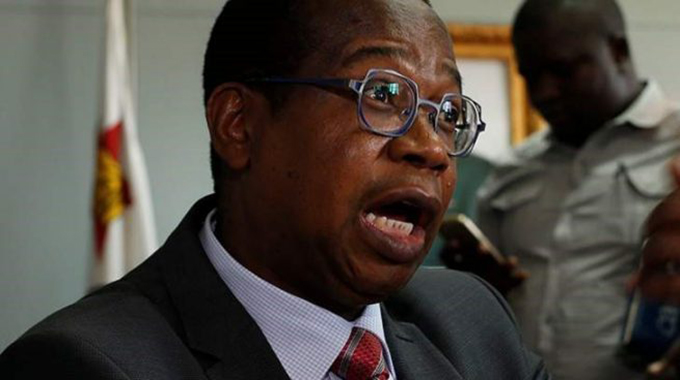‘Infrastructure bond, the way to go’

Prosper Ndlovu, Business Editor
TREASURY will soon issue a Vaka/Yakha Zimbabwe Infrastructure Bond as a strategy to mobilise adequate private sector funding to support long-term priority economic development projects, Finance and Economic Development Minister Professor Mthuli Ncube has said.
As the country strives to transform its economy towards an upper middle income status, experts say infrastructure development is the way to go as a critical enabler, acting both as an incentive to investment and source of employment.
Minister Ncube revealed the plan to issue an infrastructure bond in his 2019 mid-year budget review statement presented last Thursday where he stressed the need to capacitate utilities to fully assume their role on the infrastructure front.
He proposed an additional ZWL$1,3 billion to cater for various projects in the energy, transport, water, public amenities, social services, irrigation and other infrastructural projects. This gives a total infrastructure budget of ZWL$2,5 billion, constituting 35,4 percent of total capital development budget.
“Mindful of the budgetary constraints, Treasury will be issuing a Vaka/Yakha Zimbabwe Infrastructure Bond during the second half of the year, to mobilise private sector funding for some of our budgeted ongoing priority projects,” said Prof Ncube.
A bond is generally defined as a debt security, in which the authorised issuer owes the holders a debt and, depending on the terms of the bond, is obliged to pay interest (the coupon) to use and/or to repay the principal at a later date, termed maturity.
Normally, bonds provide the borrower with external funds to finance long-term investments, or, in the case of government bonds, to finance current expenditure.
Building contractor and Bulawayo businessman, Mr Obert Sibanda, said the infrastructure bond model was a “very good idea” and would go a long way in assisting the development of the economy.
“By and large the infrastructure bond will operate like any other bond and if people subscribe the funds will be channelled towards infrastructure projects. This is generally a very good idea provided it will be done accordingly,” said Mr Sibanda.
“As we have always said infrastructure development triggers economic growth and it also creates employment.
“Construction projects like roads, housing and public facilities give a lot of benefit to the economy.
“There is also the issue of prescribed assets. This was once proposed to say insurance, pension funds and private organisations should have 10 percent of their investments in prescribed asset status.
“This will boost the participation of these organisations in infrastructure projects and those involved should be given the leeway to have such investments.”
Prescribed assets are bonds or securities issued by the Government, local government, quasi government organisations or any other bond that may be accorded the prescribed asset status. Because of the infrastructure gap, Zimbabwe is battling reduced power supply, which has unsustainable levels as reflected through severe load shedding.
Government also admits that the current electricity supply situation retards all stabilisation gains and require urgent interventions to avoid further disruption of the productive sectors.
Several major energy generation infrastructure projects are already underway such as the Hwange units 7 & 8 Expansion Project, Kariba Dam Rehabilitation and Batoka Gorge Hydro-Electric Project.
Through the budget Government is up-scaling interventions in the water and sanitation sector by addressing identified deficiencies in existing water infrastructure, as well as expanding availability of water sources through construction of new dams and boreholes.
On transport and communications, Government has made a strategic choice to upgrade trunk roads from gravel to bituminous surfacing, as well as rehabilitation of feeder roads under the Road Development Programme.
Focus is also being directed to social services infrastructure development targeting construction of schools, hospitals and clinics, innovation hubs and a range of related support services.












Comments